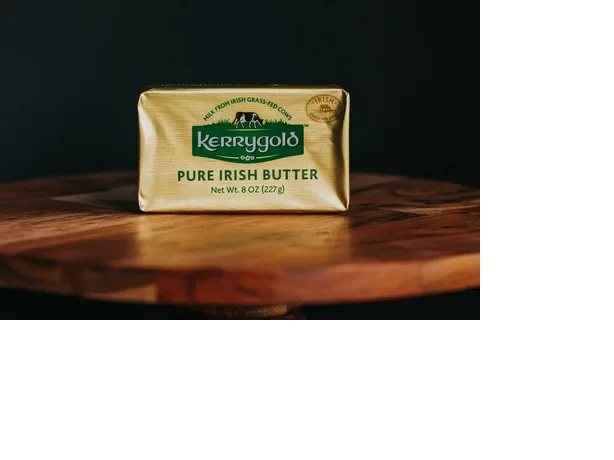Butter has been a staple in many cuisines around the world for centuries, prized for its rich flavor and culinary versatility. While conventional butter is made from milk produced by grain-fed cows, grass-fed butter is derived from the milk of cows that graze on pasture year-round. Grass-fed butter is gaining popularity for its potential health benefits and superior nutritional profile. In this comprehensive guide, we will explore seven health benefits of grass-fed butter, backed by scientific research and anecdotal evidence.
Nutrient Density
Grass-fed butter is rich in essential nutrients, including fat-soluble vitamins such as vitamin A, vitamin D, vitamin E, and vitamin K2. These vitamins play crucial roles in various physiological processes, including immune function, bone health, vision, and blood clotting. Grass-fed butter also contains healthy fats, including omega-3 fatty acids and conjugated linoleic acid (CLA), which have been associated with numerous health benefits, including reduced inflammation, improved heart health, and enhanced cognitive function.
Rich in Fat-Soluble Vitamins
Grass-fed butter is an excellent source of fat-soluble vitamins, particularly vitamin A and vitamin K2. Vitamin A is essential for vision, immune function, and skin health, while vitamin K2 is crucial for bone health, heart health, and blood clotting. Grass-fed butter contains these vitamins in their most bioavailable forms, making them easier for the body to absorb and utilize compared to synthetic supplements. Incorporating grass-fed butter into your diet can help ensure you meet your daily requirements for these important nutrients.
Heart Health
Contrary to conventional wisdom, emerging research suggests that grass-fed butter may have neutral or even beneficial effects on heart health when consumed as part of a balanced diet. Grass-fed butter is rich in healthy fats, including omega-3 fatty acids and CLA, which have been associated with reduced inflammation, improved cholesterol levels, and decreased risk of heart disease. Additionally, grass-fed butter contains butyrate, a short-chain fatty acid that may help reduce inflammation and support cardiovascular health.
Gut Health
Grass-fed butter contains butyrate, a type of short-chain fatty acid that serves as a source of energy for the cells lining the colon and plays a crucial role in gut health. Butyrate has been shown to have anti-inflammatory and antimicrobial properties, promoting a healthy balance of gut bacteria and reducing the risk of digestive disorders such as irritable bowel syndrome (IBS), Crohn’s disease, and ulcerative colitis. Including grass-fed butter in your diet may help support gut health and improve digestive function.
Weight Management
Despite its high fat content, grass-fed butter may support weight management when consumed as part of a balanced diet. The healthy fats found in grass-fed butter, including omega-3 fatty acids and CLA, have been associated with increased satiety, reduced appetite, and improved body composition. Additionally, grass-fed butter contains fat-soluble vitamins and other nutrients that play essential roles in metabolism and energy production, supporting overall metabolic health and weight management.
Antioxidant Properties
Grass-fed butter contains antioxidants such as vitamin E and beta-carotene, which help protect cells from damage caused by harmful free radicals. Antioxidants neutralize free radicals, reducing oxidative stress and inflammation and lowering the risk of chronic diseases such as cancer, diabetes, and neurodegenerative disorders. Including grass-fed butter in your diet as part of a balanced and varied intake of antioxidant-rich foods can help support overall health and well-being.
Enhanced Flavor and Culinary Versatility
In addition to its potential health benefits, grass-fed butter offers superior flavor and culinary versatility compared to conventional butter. Grass-fed butter has a richer, creamier taste and a distinct yellow color due to its higher content of beta-carotene and other nutrients from the cows’ diet of fresh grass. Grass-fed butter is prized by chefs and home cooks alike for its ability to enhance the flavor and texture of dishes, whether spread on toast, melted over vegetables, or used in baking and cooking.
How to Incorporate Grass-Fed Butter into Your Diet
There are numerous ways to incorporate grass-fed butter into your diet to reap its potential health benefits:
Spread grass-fed butter on whole grain toast or crackers for a delicious and nutritious snack.
Use grass-fed butter as a cooking fat for sautéing, frying, and roasting vegetables, meats, and seafood.
Add grass-fed butter to smoothies, soups, and sauces for added creaminess and flavor.
Bake with grass-fed butter in recipes for cookies, cakes, muffins, and other baked goods to enhance texture and taste.
Enjoy grass-fed butter as a condiment for steamed vegetables, baked potatoes, and grilled meats for added flavor and richness.
Conclusion
Grass-fed butter offers a range of potential health benefits, including nutrient density, heart health, gut health, weight management, antioxidant properties, and enhanced flavor. Rich in fat-soluble vitamins, healthy fats, and antioxidants, grass-fed butter is a valuable addition to a balanced diet and can be enjoyed in various ways, from spreading on toast to cooking and baking. Incorporate grass-fed butter into your meals and recipes to support overall health and well-being, and choose high-quality, organic sources whenever possible to maximize its nutritional value. With its delicious taste and potential health benefits, grass-fed butter is a nutritious and flavorful option for enhancing your culinary creations and nourishing your body from the inside out.
- Benefits of Cinnamon Supplements - April 2, 2024
- Benefits of Chuchuhuasi Supplements - April 2, 2024
- Benefits of Chinese Figwort Supplements - April 2, 2024


